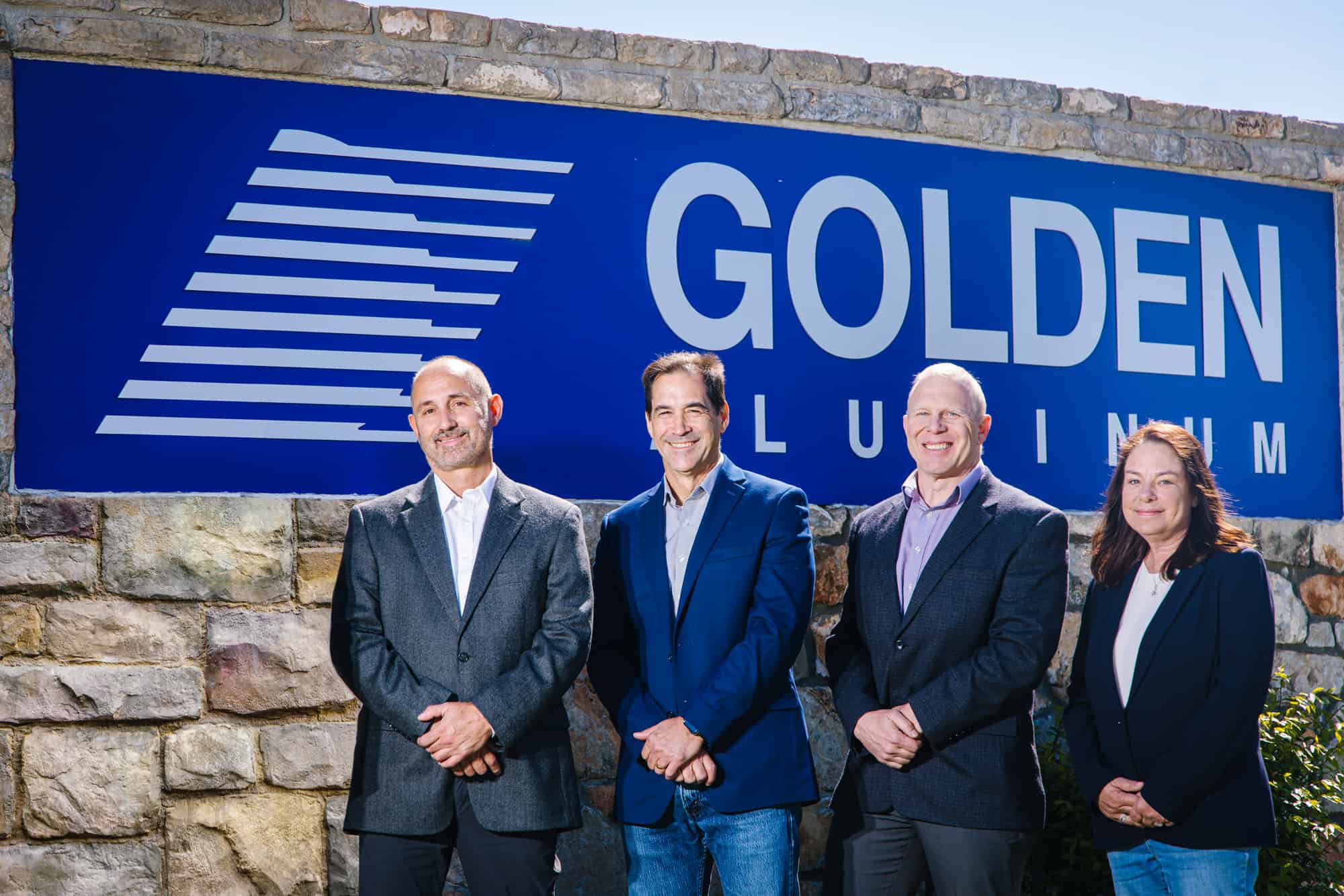
In our dynamic global economy, the strategic importance of aluminum simply cannot be overstated. It is, in essence, one of nature’s most versatile metals, serving as the foundation for a wide range of industries, from food and beverage packaging containers, construction materials, automotive applications, and electrical components.
To fully comprehend the extent of this vast business, it is critical to grasp the key roles played by two primary actors: aluminum manufacturers and aluminum suppliers. Working in harmony, they meticulously convert raw materials into practical, ready-to-use products and subsequently facilitate their distribution across multiple sectors.
In this article, we aim to shed light on the complexity and importance of the aluminum industry. Specifically, we’ll delve into the process of aluminum production, the sustainability challenges it faces, and how forward-thinking companies are responding to these issues.
Join us on an enlightening journey as we unveil the fascinating secrets of the aluminum industry, a world integral to our daily lives.
Navigate to Any Section with Ease:
- Understanding Aluminum: From Extraction to Final Product
- The Importance and Implementation of Sustainability in Modern Aluminum Manufacturing
- Role and Responsibility of Aluminum Manufacturers and Suppliers
- Case Study: Golden Aluminum – A Beacon in Sustainable Practices
- Conclusion
Understanding Aluminum: From Extraction to Final Product

Aluminum’s journey, from its extraction from the earth to its transformation into a practical product, is a fascinating process. It begins with mining for bauxite, a sedimentary rock that is rich in aluminum and is the third most abundant element on Earth’s surface. This is a task that requires land clearing, digging, and blasting through thick sections of bauxite ore.
Once extracted, the bauxite is transported to a plant where it undergoes a refining process. Here, the rock is exposed to caustic soda under extreme temperatures, a technique designed to separate alumina from bauxite. The end product of this refining process is a delicate white powder known as alumina. It is fascinating to note that for every two pounds of alumina, one pound of aluminum can be created.
But the journey doesn’t stop there. The alumina undergoes a further process of smelting to yield pure aluminum. This involves melting and heating the alumina to temperatures of just over 700°C. The molten aluminum is then cast into various forms: ingots, large blocks, t-bars, or cylindrical logs called extrusion billets – yielding a product that is 99.8% pure.
The versatile nature of aluminum becomes evident in the next stage. The pure aluminum can be further refined to produce ultra-pure aluminum or alloyed with other metals to achieve different characteristics. Golden Aluminum, for example, melts ingots of pure aluminum with recycled shredded aluminum. This aluminum is then cast into a continuous ¾ inch thick sheet, immediately rolled to a 1/10 inch thick sheet, and finally into coil form. The coils then undergo cold rolling to achieve a final, predetermined thickness and go through various finishing processes, including tension leveling, e-cleaning, and coating. This ensures the aluminum sheet is perfectly tailored to the requirements of the end application.
This process demonstrates the significant role played by aluminum suppliers and flat rolled aluminum producers in transforming raw materials into usable aluminum. Aluminum producers then deliver the aluminum to various industries to manufacture many different products. This seamless collaboration results in the production and distribution of aluminum products we see and use every day.
The extraction and production processes for aluminum are undoubtedly complex. However, as we will explore in the following sections, it also presents significant sustainability challenges that the industry is striving to address.
The Importance and Implementation of Sustainability in Modern Aluminum Manufacturing
Sustainability in modern manufacturing is no longer an optional feature; it’s an absolute necessity. In the context of the aluminum industry, this implies the adoption of practices that minimize environmental harm, advocate social responsibility, and maintain economic viability.
But why exactly is sustainability crucial for the aluminum industry? Here are some key reasons:
- Environmental Impact Minimization: Given the highly energy-intensive nature of the aluminum industry, it significantly contributes to greenhouse gas emissions. By leveraging energy-efficient technologies, robust waste management initiatives, and extensive recycling, the industry can drastically decrease its carbon footprint.
- Addressing Social Concerns: The realm of sustainability includes worker safety, community engagement, and respect for indigenous rights. Acknowledging and addressing these elements results in a more ethical business model, a positive brand reputation, and a considerable competitive advantage.
- Economic Growth and Resilience: Investment in sustainability often results in cost reductions over time, thanks to efficient resource use and waste reduction. Moreover, as the demand for sustainable products escalates, new market opportunities emerge.
In essence, sustainability in the aluminum industry is a dynamic approach to addressing environmental challenges, encouraging social responsibility, and promoting economic growth.
The urgency of sustainable development has motivated the industry to innovate, with many manufacturers now making sustainability a core component of their operations.
Here are some of the sustainable practices and technologies currently being embraced in the sector:
- Increased Energy Efficiency: Numerous aluminum manufacturers are integrating energy-efficient technologies into their operations. These might include advanced smelting techniques or energy-efficient machinery, which can considerably diminish energy consumption and the associated emissions.
- Recycling and Waste Reduction: The recycling of aluminum is a pivotal sustainable practice in the industry. It not only decreases the demand for raw materials but also requires less energy compared to producing new aluminum. Additionally, many companies are exploring innovative methods to manage and reduce waste in their operations.
- Responsible Sourcing: More and more aluminum manufacturers are focusing on responsibly sourced raw materials. This means taking into account the social and environmental impacts of their sourcing practices and striving towards more responsible procurement strategies.
The benefits of these practices are substantial and far-reaching. They can significantly reduce emissions and waste from an environmental perspective. They can lead to cost savings and open up new market opportunities. Socially, they can contribute to the betterment of workers and communities.
Role and Responsibility of Aluminum Manufacturers and Suppliers
As the world grapples with the pressing need to embrace sustainability, aluminum manufacturers and suppliers have an essential role to play and bear significant responsibilities. Their actions can influence not only their immediate operations but also the broader industry and the global environment.
Here’s a glimpse of the roles and responsibilities these entities hold:
- Championing Sustainable Practices: Manufacturers and suppliers are tasked with leading the charge towards sustainability in the industry. This means investing in energy-efficient technologies, adopting waste reduction measures, and implementing sustainable sourcing practices.
- Responsible Sourcing: Procuring raw materials responsibly is a key obligation. This implies sourcing materials from regions that adhere to environmental regulations and respect workers’ rights, thus helping to mitigate the social and environmental impacts of mining.
- Promoting Recycling: Given that recycling aluminum saves approximately 95% of the energy required to produce new aluminum, manufacturers and suppliers must actively encourage and participate in recycling initiatives.
- Industry Collaboration: Sustainability is a shared goal, and it demands collaboration. Manufacturers and suppliers should work together with other stakeholders in the aluminum industry to share best practices, develop industry-wide standards, and collectively address sustainability challenges.
- Transparency and Accountability: Stakeholders, including consumers and regulators, increasingly demand transparency around sustainability efforts. Thus, manufacturers and suppliers must be open about their practices, take accountability for their impacts, and demonstrate progress in their sustainability journey.
By taking on these roles and responsibilities, aluminum manufacturers and suppliers can significantly contribute to a more sustainable future, not just for the industry, but for our planet as a whole.
Case Study: Golden Aluminum – A Beacon in Sustainable Practices

In the search for sustainability within the aluminum industry, we have made significant strides. Our innovative and environmentally conscious practices firmly establish us at the forefront of sustainability within the sector.
At Golden Aluminum, we don’t see sustainability as just a side note to our operations; it’s a core component of what we do. We recognize the immense value the Earth gives us, and we feel an innate responsibility to give back. This belief has led us to weave sustainability into the very fabric of our operations.
Here are a few key aspects of our commitment to sustainability:
- Energy-Efficient Technology: Our proprietary NexcastTM technology is a true game-changer, greatly reducing greenhouse gas emissions. As the most efficient method of producing aluminum globally, it utilizes 80% less energy compared to other mills around the world.
- Commitment to Recycling: Today, we’re proud to say that our production uses over 70% recycled aluminum as its raw material for many products. But we don’t stop there. Our sustainability efforts extend into other areas, like collaborating with shippers who are part of the EPA’s SmartWay Transport Partnership and recycling the pallets we use in our plant.
- Industry Recognition: Our commitment to sustainable, responsible production has not gone unnoticed. We’re a Performance Standard and Chain of Custody Standard certified member of the Aluminum Stewardship Initiative (ASI), a clear testament to our dedication to sustainable practices.
We’re proud that our contributions to environmental conservation complement our production of superior aluminum products.
Creating a Nurturing Work Environment
Our team is at the heart of everything we do at Golden Aluminum. Recognizing our people as our true strength, we’ve consciously fostered an environment that values, respects, and nurtures every individual. We’re committed to embracing diversity and creating an atmosphere where everyone can truly feel they belong. We realize that our success largely hinges on our employees’ contributions, and we’re determined to provide opportunities that promote growth, innovation, and value for every team member.
In conclusion, we’ve been able to demonstrate that productivity and sustainability aren’t mutually exclusive – they can thrive together in the aluminum industry. Our success story emphasizes the immense potential and importance of sustainable practices in manufacturing, shedding light on the path forward for the rest of the industry.
Conclusion
The aluminum industry is at a crucial juncture where the need for sustainability is more significant than ever. From extraction to production and supply, each step in the life cycle of aluminum presents both challenges and opportunities to contribute to a more sustainable world.
While the hurdles are substantial, such as energy-intensive production, environmental degradation, and social concerns, the industry is making strides towards overcoming them. Innovations in energy efficiency, robust recycling programs, responsible sourcing, and transparency have started to reshape the industry’s landscape.
As we move forward, the collective effort of manufacturers, suppliers, and other industry stakeholders will be paramount. By embracing their roles and responsibilities, these key actors can drive the aluminum industry towards a sustainable future. In doing so, they will not only benefit their businesses and the industry at large, but also make a substantial contribution to the well-being of our planet and its inhabitants.
Through the lens of sustainability, the aluminum industry’s story is still being written, and every action taken today will shape the narrative of tomorrow. Therefore, it is essential for us to continue this journey of sustainable development, meeting challenges head-on, innovating, and adapting, all with an eye toward a more sustainable future for all.


